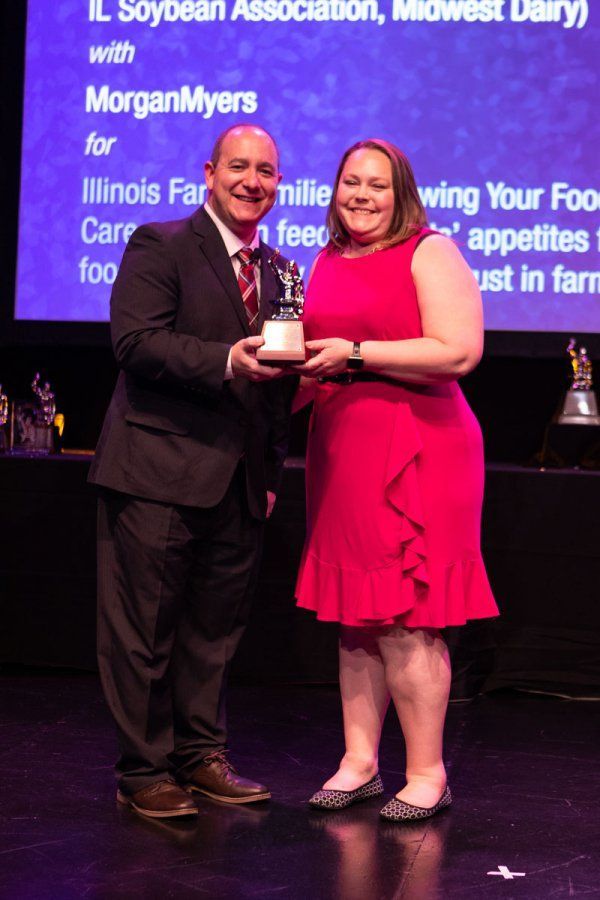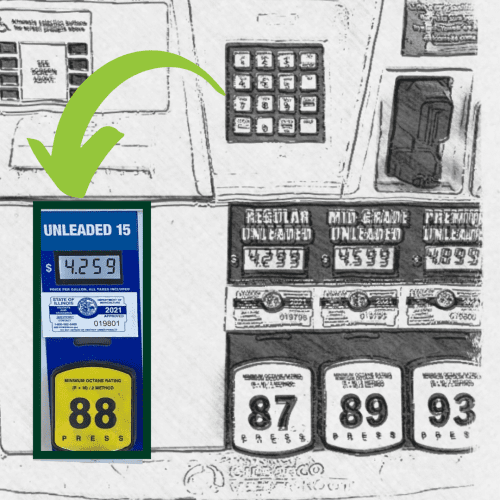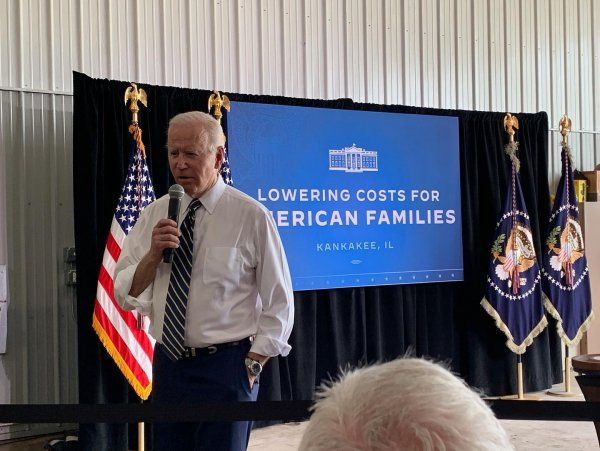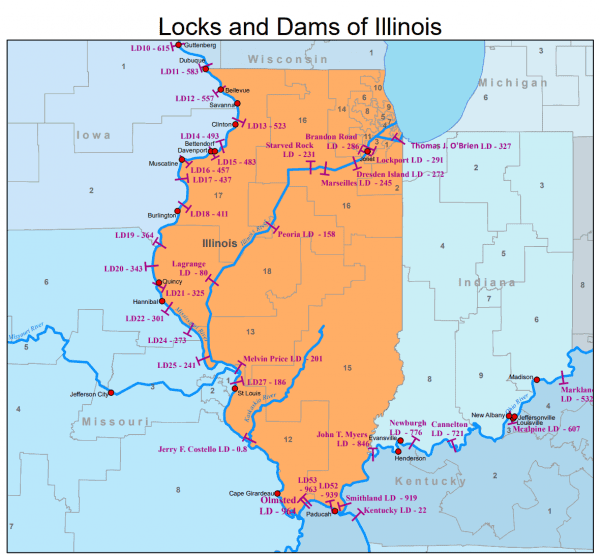Featured Article

May 27, 2022
I have spent close to 20 years living and working in our nation’s Capital, and I have never seen the number of unprecedented events here that we’ve seen over the last year. From the war in Ukraine to the Roe v. Wade leak to inflation, leaders in this city are moving from one unprecedented event to another, and other important issues are being drowned out as a result. Luckily, NCGA has still been able to secure important wins for farmers, though we face many challenges ahead. Indeed, thanks to the hard work of farmer leaders, we have seen the following results in recent months: Extension of Access to Higher Ethanol Blends. The president’s recent announcement that his administration is allowing for the continuation of consumer access to higher blends of ethanol through the coming summer months was a major victory for consumers and corn growers alike. Having the president, who has the weight of the world on his shoulders, take time to visit an Iowa ethanol plant and highlight the many economic and environmental benefits ethanol offers speaks to what can be accomplished with a unified message. Expansion of High-Speed Internet Access. Funding is being released to lower the cost of high-speed internet throughout the country, including in rural communities. This is a product of the Infrastructure Investment and Jobs Act, passed late last year. The development is a crucial win in helping farmers become even more competitive in a digitally connected marketplace. It’s also an example of the type of work that can be accomplished when both parties work together. Updates to Locks and Dams. Thanks to funding provided for in the Infrastructure Investment and Jobs Act, the Army Corps of Engineers has begun to implement plans to update the locks and dams along the Upper Mississippi River System. This is important to farmers because the system transports 60% of American corn and soybean exports to the market. Yet, much of the infrastructure that makes this possible hasn’t been updated since the 1930s. Farmers who are used to the financial burdens associated with delays along the system, will soon see barges moving more quickly and efficiently thanks to these updates. While we have a lot to be appreciative of, our path forward is formidable. A host of hot-button issues means Congress will continue to engage in a game of whack-a-mole. Even in this chaotic environment, we are moving forward with our legislative priorities. For example, we are working to garner more support for the Next Generation Fuels Act, which recognizes and takes advantage of the high-octane, low-carbon, lower-cost benefits of ethanol to begin to transition the United States to a higher-octane fuel supply. We are also focused on what can be done to lower farmer input costs and working hard to preserve the usage of important crop protection tools while gearing up for reauthorization of the next farm bill. You are an important part of this effort. Members of Congress listen to their constituents, so when you send a letter or call your member, it helps us advance our policy priorities. So, we will continue turning to you and your fellow growers as we work on these key issues. If you aren’t already, please sign-up for the National Corn Growers Association advocacy alerts. You can sign up here or by texting GROW to 50457. We will send you alerts that will provide you with an opportunity to connect with your members of Congress on key priorities. The road ahead isn’t going to be an easy one. We are competing for the attention of our national leaders, who are dealing with a world of problems. But we know from recent accomplishments that when we work together, we can make meaningful accomplishments. Let’s keep going! Appleton is vice president of public policy at the National Corn Growers Association.

May 25, 2022
The Illinois Farm Families (IFF) Coalition’s consumer engagement campaign to build trust in Illinois farmers and their farming practices was the recipient of the Public Relations Society of America’s (PRSA) prestigious Silver Anvil Award in the “Reputation Management” category. For more than 75 years, the Silver Anvil has been considered an icon of the communications profession. The award ceremony, held in New York City’s Edison Ballroom on May 19, 2022, honored the best communications and public relations campaigns from around the country.

May 25, 2022
EPA and the Army Corps of Engineers are holding ten regional roundtables to gauge the implications of recently proposed changes to the definition of Waters of the U.S. Megan Dwyer, Director of Conservation and Nutrient Stewardship at Illinois Corn Growers Association, participated in one of the agency’s roundtables on Monday, 5/23.

May 23, 2022
As Illinoisans begin their summer vacation travel, one thing is on everyone’s mind: gas prices. A recent decision by the Biden administration allowing for the continued use of higher blends of ethanol this summer will help save travelers in our state money at the pump. The president announced in April that he would extend access to fuel with a 15% ethanol blend, often referred to as E15 or Unleaded 88, this summer, which will help lower greenhouse gas emissions while saving [name of people in the state] money on fuel. “People in Illinois are feeling the pressure of inflation,” said Marty Marr, Illinois Corn Growers Association President. "As farmers, we are happy that we contribute to a homegrown product that will help save drivers money during these difficult times.”

May 11, 2022
Today, President Biden visited Kankakee, IL to address Russia’s war on Ukraine and the resulting price hike on food and the administration’s actions for additional tools and resources to support farmers and food processors. These actions from the Biden Administration include: Increase the number of counties eligible for federal crop Insurnace if double cropping soybeans following wheat Expanding to 681 additional counties for the total number of counties that qualify for crop insurance to as many as 1,935 See current counties that allow double cropping here Cut costs for farmers by increasing technical assistance for technology-driven “precision agriculture” and other nutrient management tools The Biden-Harris Administration is working on streamlining the application process for cost sharing assistance programs through the U.S.D.A. available to farmers participating in nutrient management programs. Double funding for domestic fertilizer production The initial investment of domestic fertilizer production was $250 million and the administration is now doubling that to $500 million to help lower costs and boost availability to farmers in the U.S. IL Corn was able to attend this announcement with partners from IL Soybean Association and National Corn Growers Association. “We’re excited to be able to attend this announcement to show the administration the impact of their decisions,” says Rodney Weinzierl, Executive Director of IL Corn, “the fact that they’re making changes and recognizing farmer hardships is reassuring but hopefully only a first step among many as farmers in Illinois continue to feed and fuel the world.”

May 5, 2022
Farmers are the foot soldiers in the war on hunger , and that never has been more apparent than it is in today in Ukraine. As fighter jets soar overhead, bombs drop on cities, and tanks battle for towns, heroic farmers like Kees Huizinga are in the fields, trying to plant a new crop. They’re putting seeds in the ground and trying to coax them to life in some of the most difficult of circumstances imaginable. We all have a stake in whether they make it to harvest. These farmers stand on the frontlines of food security. Their success or failure will affect the whole planet. Their calm, determination, and resilience in the storms of war is amazing and inspiring. It also reminds me of my younger days, in the 1970s, when I was just starting out as a farmer in South Africa. My country didn’t suffer from a foreign invasion. Instead, we were at war with ourselves, over the brutal system of racial apartheid. My mother was an anti-apartheid activist. I worked as a farm hand, driving tractors during the day, so I could take care of my siblings. We were homeless. We stayed with neighbors and moved around a lot. Times were tough. The work had its challenges and dangers, too. We labored in fields riddled with landmines. At any moment, a tractor could roll over one of these deadly devices and trigger an explosion. Those were the most immediate hazards. We also dealt with severe shortages, brought on by sanctions against South Africa’s regime. The price of fuel rose. The government responded by restricting its sale and use. Petrol stations shut down their fuel pumps at 6 pm. They stayed closed on weekends. In a move to promote fuel efficiency, speed limits on highways dropped to 70 kilometers per hour. (That's less than 45 miles per hour.) Even so, we managed to produce successful crops. I believed in the fight against apartheid. Although I didn’t wear a military uniform, I understood my role. It required risks and demanded hardship, but it was worth it. We won our victory. I also saw that farmers can grow food under the worst circumstances. That’s what gives me hope for Kees and his fellow farmers in Ukraine. They work under tremendous pressure. They suffer from limited resources. If Russians show up on their land, they may even face disaster. Yet they go about their work. Their fight is our fight, too. We live in a global economy, and although inflation was already underway before the Russian invasion, the war in Ukraine has made the cost of everything go up. On my farm, where I grow corn, beans, and potatoes and also raise pigs and cows, I’m paying a lot more for gas and fertilizer. Food security everywhere is at risk. The FAO Food Price Index , a measurement used by the UN to track food costs, has hit record levels this calendar year. Food prices between February and March jumped by 12.6 percent. Even if our eating habits haven’t changed, we’re paying a lot more for what we consume. As this war between two agricultural nations drags on, things could grow a lot worse. The FAO says that 26 nations rely on Ukraine and Russia for half of their wheat imports. Many of them are in the dry regions of Africa, my continent, where food security is a problem even in good times. Now we’re watching another food-security crisis unfold. This easily could lead to political unrest in places such as Egypt, which imports 80 percent of its wheat from the warring countries, according to the Center for Strategic and International Studies. We should all hope that the war ends soon. That’s the best solution to our troubles. Meanwhile, farmers everywhere are adjusting their own planting strategies based on demand and scarcity. We’ll continue to do what we can to provide the world with the food it needs. Kees will do it in an actual combat zone. The rest of us will wage a war on hunger the only way we know how, as foot soldiers whose best weapon is a farmer’s resilience. Motlatsi Musi grows maize, beans, potatoes, pecan nuts and breeds pigs and cows in South Africa. He is the 2017 Kleckner Award recipient and a member of the Global Farmer Network. www.globalfarmernetwork.org

May 5, 2022
Yesterday, the Senate Environment and Public Works Committee unanimously passed its Water Resources Development Act (WRDA) of 2022. The bill includes a cost-share shift offered by Senators Tammy Duckworth and Dick Durbin, that will allow for quicker completion of inland waterways projects to alleviate supply chain issues and address global food security and energy security. The new cost-share provision would permanently adjust the inland waterways cost-share for construction and major rehabilitation projects from 65 percent general revenue and 35 percent Inland Waterways Trust Fund to 75 percent general revenue and 25 percent Inland Waterways Trust Fund. The proposal also eliminates the sunset provision and preserves these changes indefinitely.

May 3, 2022
If you drive over LaSalle’s Abraham Lincoln Memorial Bridge that spans the Illinois Waterway, you may look down to see barges being pushed by towboats, but probably don’t know exactly what is being transported inside them, where their contents are going or how it affects your life. If you are near Chicago, when you think about the river, you may think about it turning green for Saint Patrick’s Day. But what you probably do not think about is the significant amount of commerce on Illinois’ rivers, the barges laden with critical commodities that are being transported to destinations domestic and international, and the hundreds of thousands of jobs that are supported by our state’s inland waterways.
Articles
2026
2025
2024
2023
2022
2021
2020

